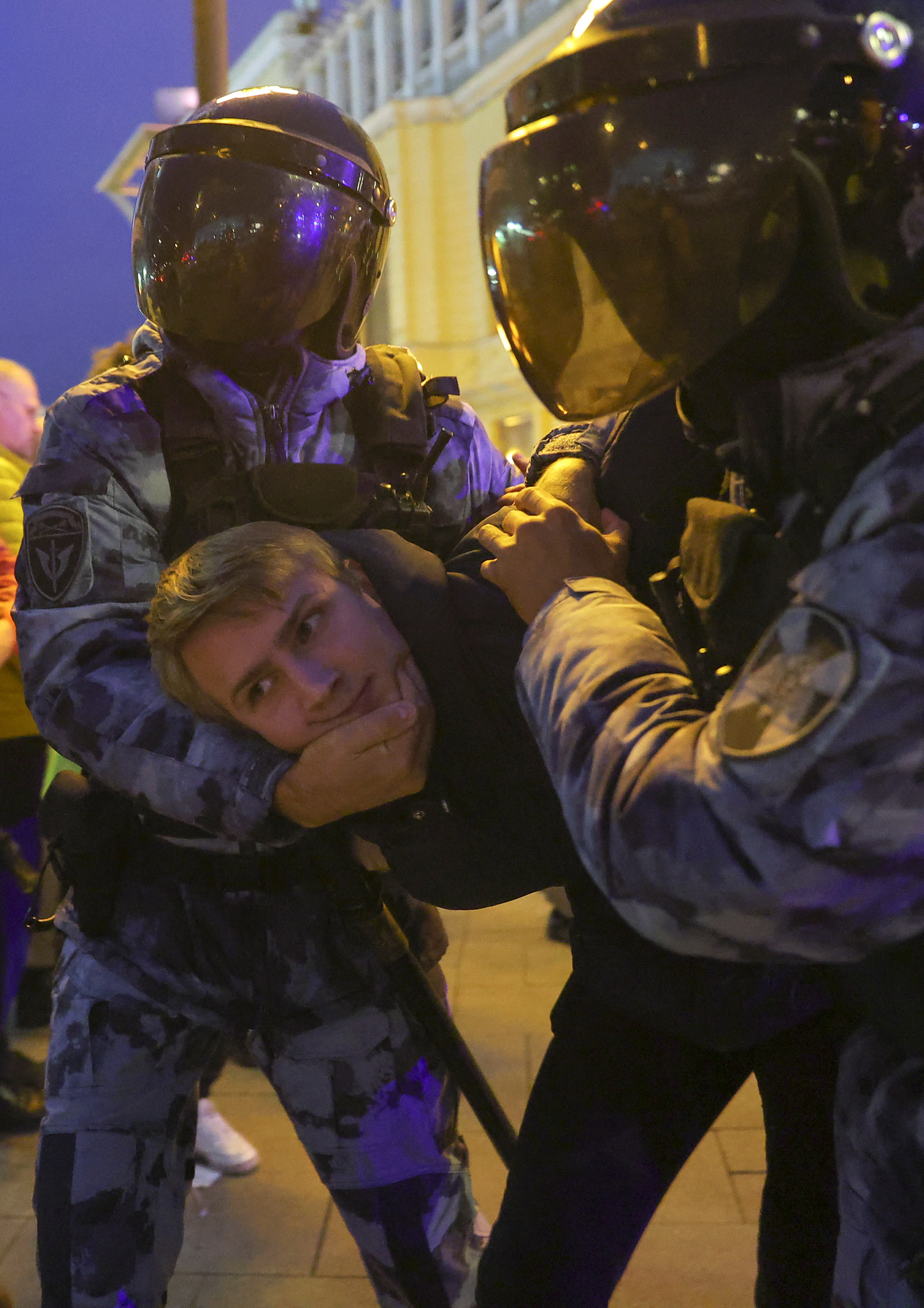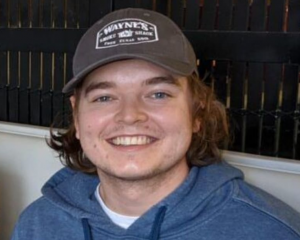European Union foreign have ministers agreed to prepare new sanctions on Russia and increase weapons deliveries to Kyiv after President Vladimir Putin ordered the country's first wartime mobilisation since World War 2 to fight in Ukraine.
The bloc's 27 foreign ministers are in New York for the annual gathering of world leaders at the United Nations.
Moscow plans to conscript some 300,000 troops in an apparent escalation of its Ukraine invasion that began in February and has left thousands dead, displaced millions and reduced towns to rubble.
EU foreign policy chief Josep Borrell said Putin's announcement - which included moves to annex swathes of Ukrainian territory and a threat to use nuclear weapons to defend Russia - showed panic and desperation.
"It's clear that Putin is trying to destroy Ukraine," Borrell told reporters on Wednesday after ministers met to decide how to respond.
After being briefed by Ukrainian Foreign Minister Dmytro Kuleba, the ministers agreed to task their teams to prepare an eighth sanctions package that would target "more relevant sectors of the Russian economy and continue targeting people responsible for the war of aggression in Ukraine," Borrell said.
EU ministers will hold their next formal meeting in mid-October when a sanctions package could be formalised.
The ministers also agreed to ramp up weapons supplies to Ukraine. Borrell declined to give further details on the type of sanctions or military support, but said he believed there would be "unanimous" support within the bloc for new measures.
Speaking in an interview with Reuters, Estonian Foreign Minister Urmas Reinsalu said Putin was trying to frighten and divide the West, but his latest comments were a "game-changing moment."
Wednesday's meeting should emphasise unity, move ahead quickly with a new sanctions package and use the European peace facility funding mechanism to ramp up weapons supplies to Ukraine, he said.
"We should also declare the commitment of legal responsibility. The fuhrers in the Kremlin should not take it for granted that their accountability for the genocidal war should be taken mildly."
Keeping unity among the 27 for a sanctions package may prove complex amid an energy supply crisis that has hit the bloc hard. Hungary on Tuesday dismissed the idea.
"It's different now," Reinsalu said. "There is a saying in aviation that regulations are written with the blood of victims of air catastrophes. Well all the (sanctions) packages are written with the blood and atrocities Russia has committed."

Zelenskiy wants Russia stripped of veto power
President Volodymyr Zelenskiy has demanded a special UN tribunal impose "just punishment" on Russia for its invasion of Ukraine, including financial penalties and stripping Moscow of its veto power in the Security Council.
The Ukraine president made the plea in a recorded address to world leaders at the UN General Assembly on Wednesday.
"A crime has been committed against Ukraine, and we demand just punishment," Zelenskiy said.
"A special tribunal should be created to punish Russia for the crime of aggression against our state... Russia should pay for this war with its assets," the Ukrainian president said, urging the UN to "remove the right of veto" from Russia as a Security Council member.
Zelenskiy laid out what he said were five non-negotiable conditions for peace. These included punishment for Russian aggression, restoration of Ukraine's security and territorial integrity, and security guarantees. Many delegates at the UN gave him a standing ovation at the end of his speech.
US President Joe Biden, in a speech to the General Assembly, responded: "Again, just today, President Putin has made overt nuclear threats against Europe, in a reckless disregard for the responsibilities of the non-proliferation regime."
Canadian Prime Minister Justin Trudeau condemned Putin's "irresponsible escalation of the war", saying "Putin's behavior only goes to show that his invasion is failing."
Foreign ministers from the Group of Seven (G7) advanced economies confirmed in a meeting in New York on Wednesday their cooperation in extending support for Ukraine and responding to food and energy security, the Japanese Foreign Ministry said.
"It's clear Russia wants to destroy Ukraine," EU foreign policy chief Josep Borrell said. "We will not be intimidated."
Russia has been facing a string of battlefield failures, with its invasion force routed in northeastern Ukraine.
Ukrainian forces say they are now poised to push deeper into territory Moscow had captured over months of heavy fighting.
"No amount of threats and propaganda can hide the fact that Ukraine is winning this war, the international community are united and Russia is becoming a global pariah," said British Defence Secretary Ben Wallace.

Protests and flights out of Russia
Putin ordered the military draft in a televised address on Tuesday in which he also announced moves to annex four Ukrainian provinces and threatened to use nuclear weapons, declaring: "It's not a bluff".
The reservists' main task will be to reinforce the front line in Ukraine, which is currently over 1000km long, Russian Defence Minister Sergei Shoigu said.
The reservists will need training and Western military analysts said it will be several months before they see action.
Flights out of Russia quickly sold out, and jailed opposition leader Alexei Navalny called for mass demonstrations against the mobilisation.
Independent protest monitoring group OVD-Info said more than 1300 people had been detained in protests by Wednesday evening.
Offering no evidence, Putin accused officials in NATO states of threatening to use nuclear weapons against Russia. They should know that "the weathervane can turn towards them", he said, adding that Russia "also has various means of destruction".
"When the territorial integrity of our country is threatened, we will certainly use all the means at our disposal to protect Russia and our people. It's not a bluff."
Russia's mobilisation may be the riskiest domestic political move of Putin's two decades in power, and followed months of Kremlin promises it would do no such thing.
The war has so far appeared to enjoy popular support in a country where independent media have all been shut down and public criticism of the "special military operation" is banned.
But for many ordinary Russians, especially in the urban middle classes, the prospect of being sent to fight would be the first hint of the war affecting them personally.
On the Moscow metro, men could be seen studying call-up papers.
"You always feel worried at moments like these. Because you have a wife and kids and you think about it," one resident told Reuters.
Prisoner swap
Meanwhile, Russia and Ukraine carried out an unexpected prisoner swap on Wednesday, the largest since the war began and involving almost 300 people, including 10 foreigners and the commanders who led a prolonged Ukrainian defence of Mariupol earlier this year. Read full story
The foreigners released included two Britons and a Moroccan who had been sentenced to death in June after being captured fighting for Ukraine.
Also freed in the deal brokered by Saudi Arabia, according to a Saudi ministry, were three other Britons, two Americans, a Croatian, and a Swedish national.
The released Ukrainians had been captured after a long battle for the port city of Mariupol earlier this year and included top military commanders, said Andriy Yermak, the head of President Volodymyr Zelenskiy's office.













